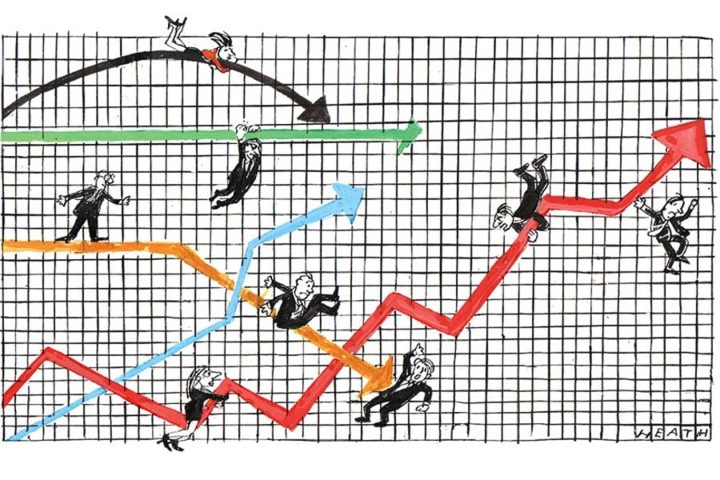So the economy has defied the predictions of doom once more. The latest figures released by the Office for National Statistics (ONS) this morning show that the economy grew by 0.5 per cent in June, more than countering a 0.1 per cent fall in May, widely attributed to the extra bank holiday for the coronation.
Over the three months to June the economy grew by 0.2 per cent, following a 0.1 per cent expansion in the first quarter. One of the most promising aspects of today’s figures is that all sectors of the economy grew in June, with production (1.8 per cent) and construction (1.6 per cent) outpacing services (0.2 per cent) for once.
It is hardly fireworks but it does once more call into question the competence of economic forecasters. It is hard to remember that at the beginning of this year many were predicting that the UK would be the only advanced economy to shrink in 2023.
The IMF, for example, forecast a 0.6 per cent fall, which would have meant a worse performance than even Russia. Instead, it has been some Eurozone economies that have been spluttering.
The German economy flatlined in the last quarter, while the Netherlands and Italy have seen shrinking economies this year. Needless to say, a lot of the reporting of that IMF forecast couldn’t resist throwing in Brexit, even if the IMF hadn’t actually mentioned it. The BBC, for example, duly noted that the IMF report came on the day that ‘marks three years since the UK left the EU.’ Today’s more muted BBC coverage of actual growth figures barely seems to mention Brexit.
None of this, of course, disguises the fact that the UK economy remains sluggish. The economy in June was just a shade larger than it was on the eve of the pandemic. Productivity growth in Britain remains extremely poor, and without improvement it is going to be hard for the economy to grow long-term. The UK, like the whole of Europe, remains in a miserable slough compared with the US economy which grew at an annualised 2.4 per cent in the second quarter – the corresponding, annualised figure for the UK is 1 per cent growth in the 12 months to June.
On the positive side, the economy has succeeded in reaching its pre-pandemic size following the pandemic a little quicker than it did following the 2008/09 financial crisis. It took until August 2012 for GDP to get back to where it had been in April 2008.
There is one other issue which needs to be asked following this month’s GDP figures. Given that many businesses reported that the extra bank holiday in May affected their output, was it an error to have that extra coronation bank holiday? The bank holiday itself, after all, wasn’t even on the day of the coronation, but two days later, on the Monday. Moreover, there had been a bank holiday, May Day, the previous Monday. It meant that Britain lost four Mondays to bank holidays during April and May. Calling a bank holiday might be a popular gesture by the government – but it can have a serious impact on economic growth.







Comments